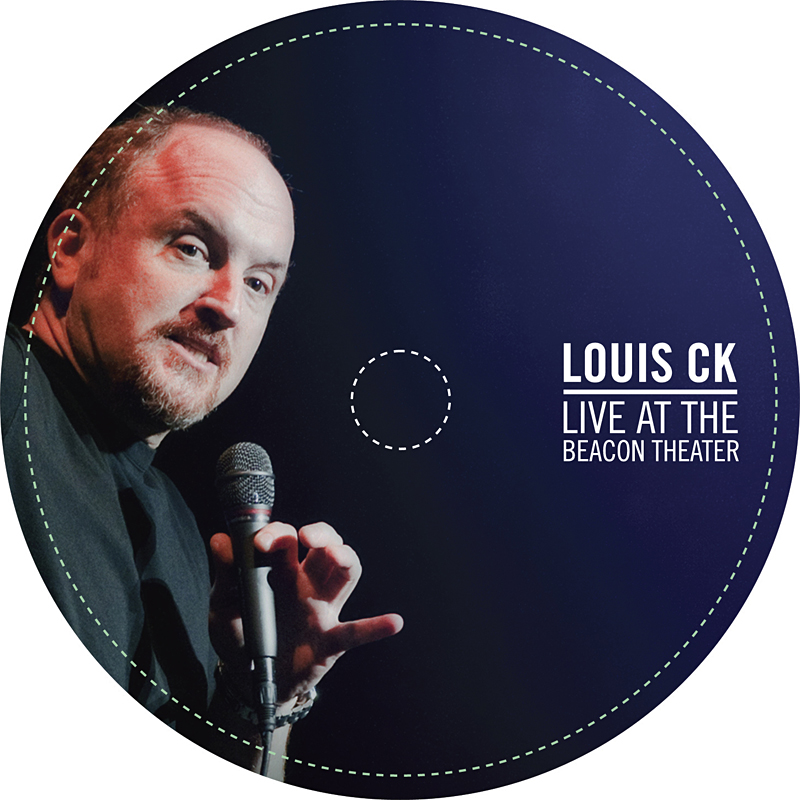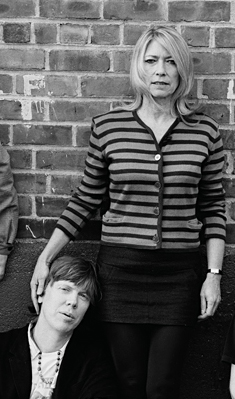Director Jensen Rufe’s Rural Rock & Roll is like a cross between the documentaries Hype! and Athens, GA: Inside/Out. Hype! posthumously chronicled a rock scene that exploded from a remote, soggy logging town no one had ever heard of previously (aka “Seattle”), while Inside/Out documented the quirky alternative music coming from a sleepy Southern university town no one had ever heard of previously. Both documentaries revealed two main themes: (1) Off-the-radar towns breed creative eccentrics; and (2) left to their own devices, young people can make their own scene.
Documentaries with similar themes could be made about Santa Cruz, Calif.; Ruston, La.; Allentown, Pa.; Bozeman, Mont.; and Lawrence, Kan. But Rufe chose the music of Humboldt County, Calif., as his subject. Hemmed in by looming redwoods and the Pacific Ocean, Humboldt County occupies some of the most beautiful terrain on the Left Coast. It’s a bastion of hippiedom where public radio announcers warn marijuana growers of DEA sightings, yet with U.S. Highway 101 slicing straight through the region, the cities of Eureka and Arcata serve as little more than bathroom breaks for the 14 hours it takes to drive from San Francisco to Portland, or vice versa.
Spotlighting unknown bands like grinding garage punks the Ravens, the all-girl dream-pop quartet the Ian Fayes (best bet for next band to make a name for itself outside of Humboldt County), quirky pop group the Buffy Swayze, and mountain metalheads the Hitch, Rufe’s interviews show a wide array of charming and intelligent artists. Not surprisingly, the folks in these bands pretty much all have day jobs. The Buffy Swayze frontman has been slinging hamburgers for the last six years, while the Ravens’ drummer works in a record and skate shop. And the burly sonsabitches in the Hitch are all general contractors with beards—going so far as to practice while still clad in their Carhartts and paint-splattered T-shirts.
Rufe augments his live footage and band interviews by chatting to local cheerleaders Bob Doran, a columnist for the North Coast Journal, and Michelle Cable, publisher of Panache magazine. Both offer insight into what makes the scene so special. Cable insists it’s the fact that “everyone supports everyone else,” while Doran says “the people who are into the music scene have to do the work to make the shows happen” (i.e., flyering, booking, etc.).
If the topic of this movie sounds all too familiar, that’s because it is. If there is a music scene in some small American town, it will boast young people playing music just because they love to, and similarly motivated people who work behind the scene to bring that music to a live audience. (A quick flip through Michael Azerrad’s book on the ’80s underground, Our Band Could Be Your Life, will bring you up to speed on disparate DIY movements over time.) The bands are great and unique, yet Rufe asserts that it’s really hard for the bands to get noticed outside of Eureka and Arcata because no one knows the towns are there.
The main problem with this assertion is that, nowadays, if you want to be heard badly enough, an Internet connection is quite the ticket. Most of the Humboldt County bands have MySpace pages that no doubt help them score some Bay Area gigs, but the film doesn’t address this fact. However, as Dameon Lee, frontman for Arcata country rockers Lowlights, proves, no matter how far from a big city one is, an interstate highway is never out of reach. Footage of Lee focuses on loading the van, saying goodbye to his girlfriend, and hitting the road. It’s pitched as an example for the other bands to follow.
Ultimately, Rufe’s film could use some Hype!-like analysis of what makes the Humboldt County bands unique (the rain? the marijuana? the trees?) as well as some commentary from better-known Humboldt natives like Mike Patton of Faith No More or Comets on Fire members Ben Chasny and Ethan Miller.
But all this could come in an updated edition of Rural Rock & Roll. Rufe has mentioned in interviews that this film should be looked upon as a television pilot. He hopes to turn the concept into a roving, region-by-region spotlight, which would make for seriously entertaining television, especially once he gets around to the really weird places like Allentown, Pa., where bands live in warehouses, sleep on bare mattresses, and live on ketchup sandwiches and cheap beer.







